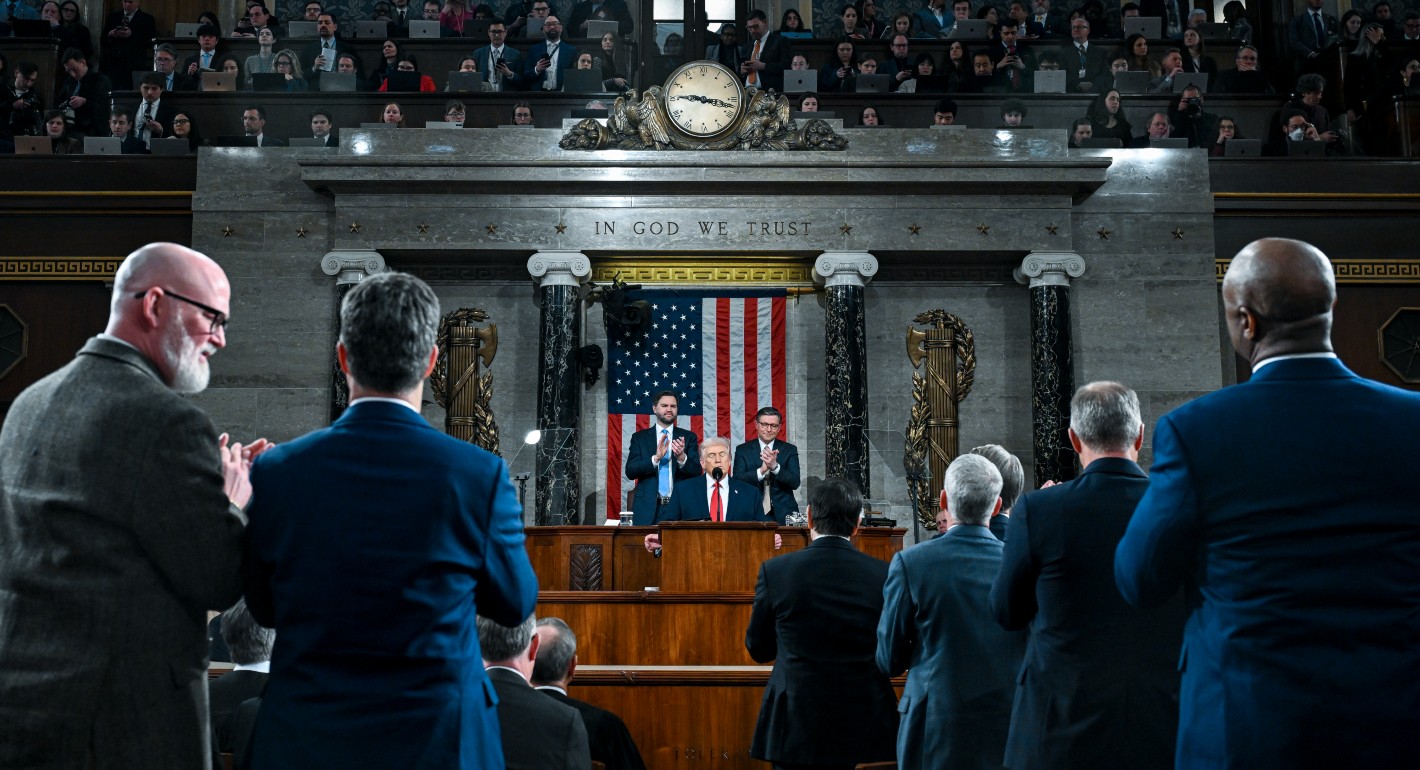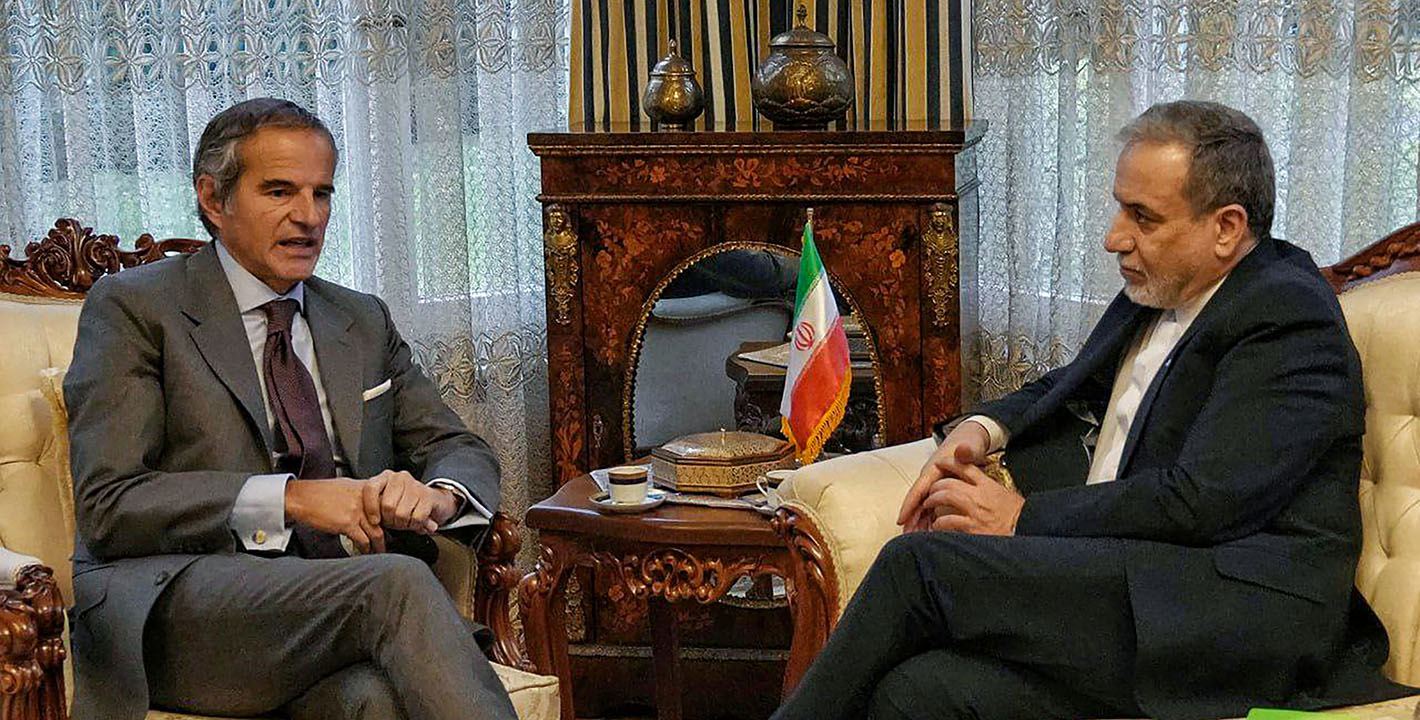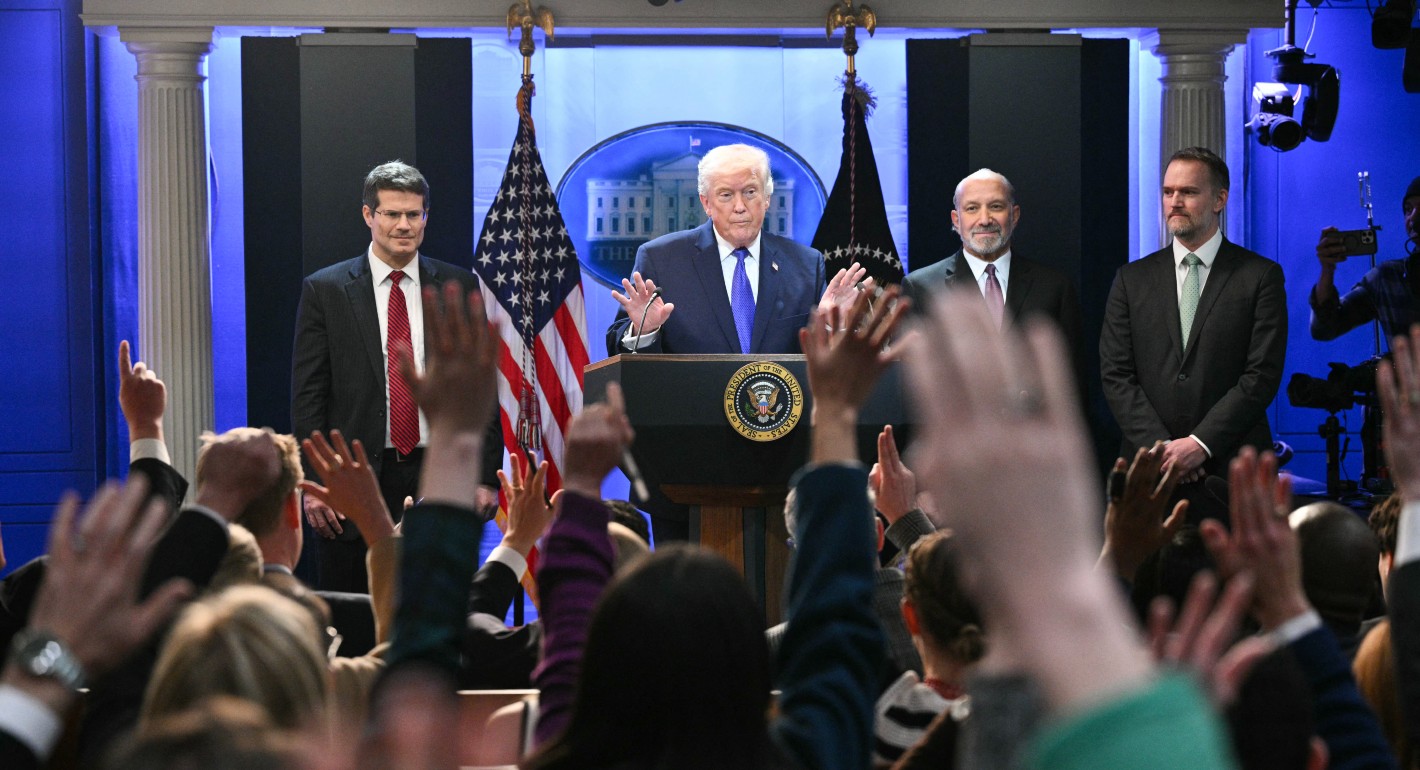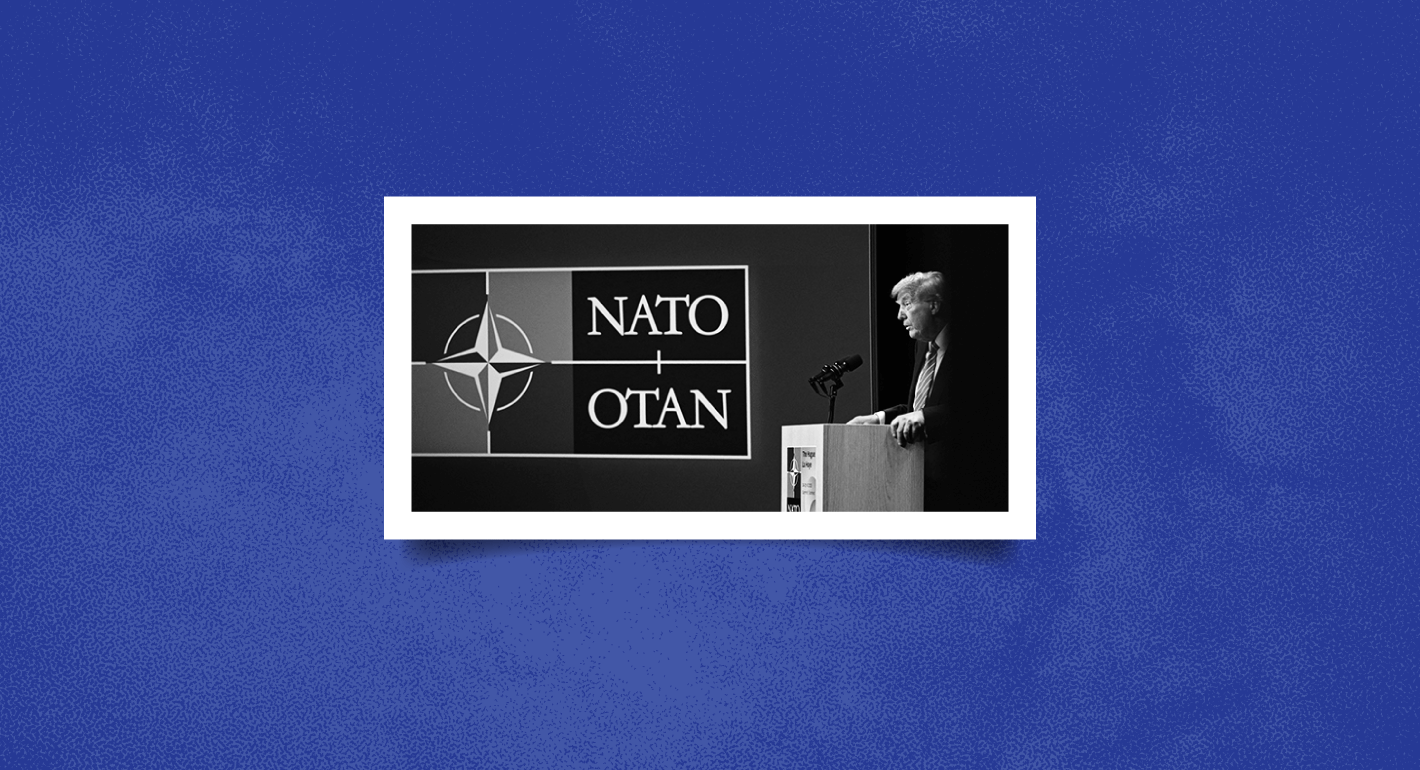George Perkovich
{
"authors": [
"George Perkovich"
],
"type": "legacyinthemedia",
"centerAffiliationAll": "dc",
"centers": [
"Carnegie Endowment for International Peace"
],
"collections": [
"U.S. Nuclear Policy"
],
"englishNewsletterAll": "",
"nonEnglishNewsletterAll": "",
"primaryCenter": "Carnegie Endowment for International Peace",
"programAffiliation": "NPP",
"programs": [
"Nuclear Policy"
],
"projects": [],
"regions": [
"North America",
"United States"
],
"topics": [
"Nuclear Policy"
]
}
REQUIRED IMAGE
Imperfect Progress
Source: The Wall Street Journal
In the apparent nuclear deal with North Korea, the Bush administration has stopped letting the (unattainable) perfect be the enemy of the (doable) OK. For a heavy price in fuel oil and sanctions relief, Pyongyang will stop exacerbating the nuclear dangers it poses. If all goes according to plan, it will shut down the reactor in which it has been producing bomb fuel, and will allow international inspectors to verify this.
Presumably, North Korea also has agreed not to conduct further nuclear tests; but U.S. and other diplomats are strangely silent on this. If there is no such understanding, the deal is less good, or more imperfect. More likely, North Korea has agreed implicitly to eschew further tests as long as it is satisfied with the diplomatic process.
The North Koreans have not agreed to verifiably eliminate their stockpile of nuclear weapons and bomb materials. Rather than an operational commitment to disarm, the U.S. has extracted from North Korea a willingness to negotiate further a series of quid pro quos, which ultimately would require the dismantling of its nuclear weapons capabilities.
There is no reason to believe that any North Korean dictatorship will ever actually implement the final steps of verifiable disarmament. Nuclear bombs and plutonium are the best assets to trade for economic assistance; once the stuff is gone, why would the world keep paying the dictatorship off? Similarly, bombs and plutonium are the regime's best insurance against regime change: If you invade, we bomb South Korea or sell plutonium to terrorists.
The Bush administration, for six years, ignored the reality that the North Koreans would not trade away all their nuclear levers. The U.S. refused to negotiate on anything less than the unachievable optimum of complete, verifiable disarmament. Meanwhile, North Korea quintupled its stockpile of plutonium and tested one of its nuclear weapons. The administration patted itself on the back for not compromising with an evil regime, but meanwhile, the world became more dangerous.
When history recurs, it is for a reason. Ever since International Atomic Energy Agency inspectors discovered in 1992 that North Korea had secretly produced weapons-grade plutonium beginning in 1989, Presidents Bush, Clinton and Bush demanded that Pyongyang give up this material, and verifiably abandon all nuclear-weapon activities. North Korea has demurred, delayed and defied accommodation. It has stopped short of inciting warfare or complete economic isolation, but it also has shown no real interest in surrendering all its nuclear assets.
On the brink of war in 1994, the Clinton administration and North Korea negotiated a framework agreement much like the one announced yesterday. North Korea would cease work in its plutonium production complex, allow international inspections and, in a step-by-step process over many years, account for and remove all of the plutonium it had produced. All parties were imperfect in fulfilling their terms, and North Korea secretly acquired uranium enrichment capabilities from Pakistan, which could in theory have substituted for plutonium. But North Korea did not produce more bomb material in this period or conduct a nuclear test.
If the current deal keeps North Korea from producing more bomb material and conducting more nuclear tests, it will be a good thing. If further pay-offs can induce Pyongyang to reduce the stockpile and reassure us that security and control procedures minimize the risks that nuclear materials or bombs could be transferred to terrorists, we should haggle over the price. Progress in nuclear security is worth paying for, even if it is imperfect.
Republicans and Democrats should now spare each other and the world the sanctimony of denouncing such dealmaking. Both parties have made imperfect deals with an impure North Korean regime. The focus now should be on consolidating the North Korean commitment not to make things worse.
More ambitiously, Republicans and Democrats should urge extending the six-party negotiating forum into a broader exploration of steps to prevent instability in Northeast Asia. Japan has fraught relations with both North and South Korea, and worries about China's rising power. China fears that Japan could someday convert its peaceful plutonium stockpile into weapons, and that the U.S. could someday use a unified Korea as a base for containing China. Everyone sees the prospect of Korean unification differently. These issues go to the core of global security in the 21st century. By broadening the agenda, this modest nuclear deal can become the start of something bigger.
Mr. Perkovich directs the nonproliferation program at the Carnegie Endowment for International Peace.
“Reprinted from The Wall Street Journal © 2007/2000 Dow Jones & Company. All rights reserved.”
About the Author

Japan Chair for a World Without Nuclear Weapons, Senior Fellow
George Perkovich is the Japan Chair for a World Without Nuclear Weapons and a senior fellow in the Carnegie Endowment for International Peace’s Nuclear Policy Program. He works primarily on nuclear deterrence, nonproliferation, and disarmament issues, and is leading a study on nuclear signaling in the 21st century.
- How to Assess Nuclear ‘Threats’ in the Twenty-First CenturyPaper
- “A House of Dynamite” Shows Why No Leader Should Have a Nuclear TriggerCommentary
George Perkovich
Recent Work
Carnegie does not take institutional positions on public policy issues; the views represented herein are those of the author(s) and do not necessarily reflect the views of Carnegie, its staff, or its trustees.
More Work from Carnegie Endowment for International Peace
- Indian Americans Still Lean Left. Just Not as Reliably.Commentary
New data from the 2026 Indian American Attitudes Survey show that Democratic support has not fully rebounded from 2020.
- +1
Sumitra Badrinathan, Devesh Kapur, Andy Robaina, …
- Trump’s State of the Union Was as Light on Foreign Policy as He Is on StrategyCommentary
The speech addressed Iran but said little about Ukraine, China, Gaza, or other global sources of tension.
Aaron David Miller
- U.S. Aims in Iran Extend Beyond Nuclear IssuesCommentary
Because of this, the costs and risks of an attack merit far more public scrutiny than they are receiving.
Nicole Grajewski
- How Middle Powers Are Responding to Trump’s Tariff ShiftsCommentary
Despite considerable challenges, the CPTPP countries and the EU recognize the need for collective action.
Barbara Weisel
- Trump’s Protectionism and Future of Global Order: How Useful Are Appeals to History?Research
Donald Trump’s trade protectionism has provoked a remarkable range of appeals to history, but none fully captures the nature of Trumpian protectionism, even if there are echoes from the past in different aspects of its content.
Eric Helleiner









